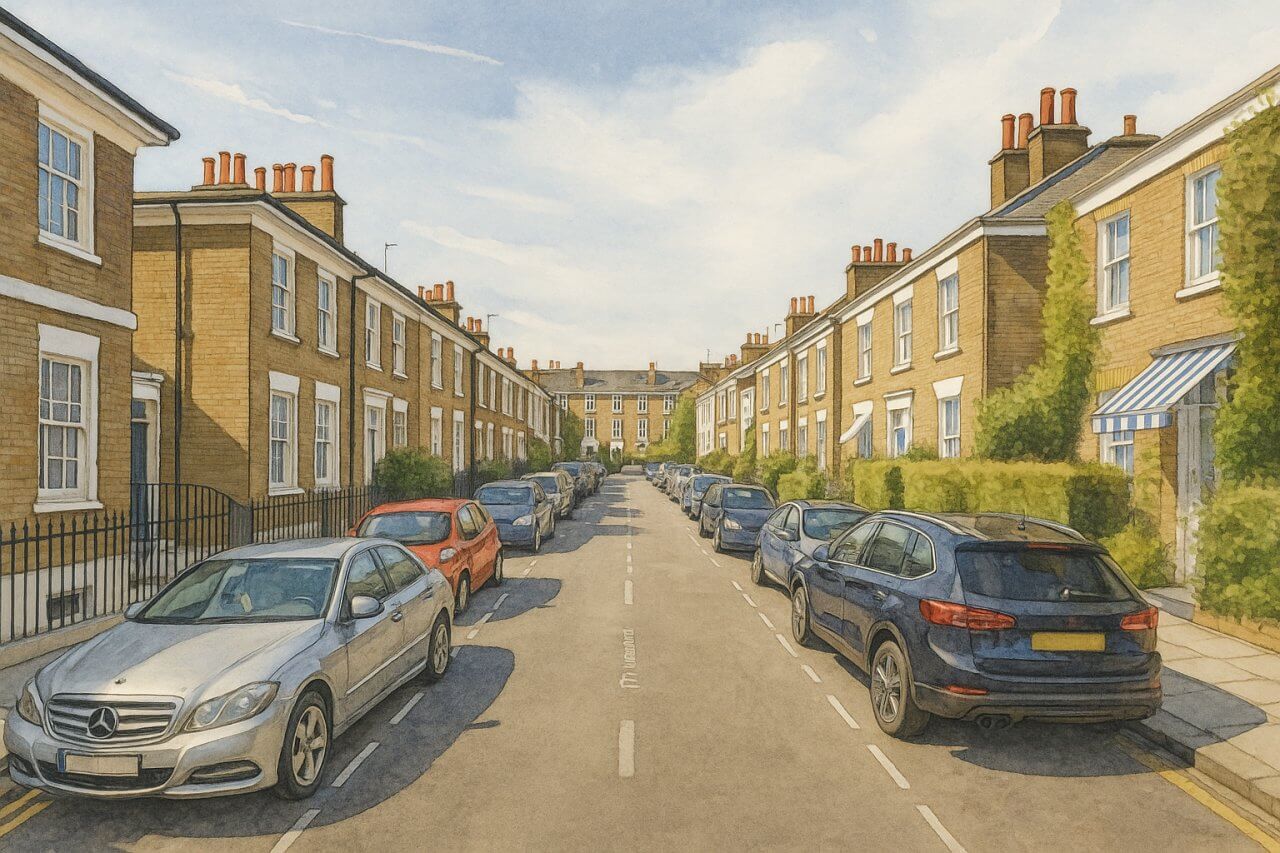
Bloomfield Terrace, London
Bloomfield Terrace is a peaceful, residential street tucked away in the heart of Belgravia, within the City of Westminster, London. Shaped like an inverted letter “L,” it runs from Pimlico Road at its northern end to St Barnabas Street at its southern end. The road lies within one of London's most desirable neighbourhoods, known for its refined charm and architectural elegance.
Where Is Bloomfield Terrace?
Bloomfield Terrace sits within the prestigious area of Belgravia, between Victoria and Chelsea. It lies just south of Eaton Square and west of Eccleston Street. The Pimlico Road end places it close to the fashionable Orange Square (home of the beloved Pimlico Farmers’ Market), while the southern end joins the quieter St Barnabas Street.
Length and Traffic Flow
Bloomfield Terrace is approximately 110 metres long (about 360 feet), and it follows a distinctive inverted “L” configuration. It is a narrow, one-way residential road. Traffic flows north to south, beginning at Pimlico Road and ending at St Barnabas Street.
History and Origins
Bloomfield Terrace was developed in the mid-19th century as part of the broader expansion of Belgravia. The surrounding area was laid out and built up by master builder Thomas Cubitt in the 1820s–1850s, under the direction of the Grosvenor Estate, though Bloomfield Terrace itself appears slightly later on mid-Victorian maps.
Name Origin
The name Bloomfield Terrace likely commemorates a person of the surname Bloomfield, possibly Lieutenant-General Benjamin Bloomfield, a notable military officer and courtier under King George IV. However, the exact origin of the name remains uncertain, and records do not confirm a direct dedication. The street name appears in use by the 1860s.
Pronunciation
The name Bloomfield is pronounced “BLOOM-field”, where the first syllable rhymes with “room.” In the International Phonetic Alphabet, it is transcribed as: /ˈbluːm.fiːld/. 
Character of the Street
Bloomfield Terrace is quiet and residential, with a uniform row of stucco-fronted terraced houses that display classic Victorian and late Georgian influences. The homes typically feature three or four storeys, with decorative door surrounds, sash windows, and modest front gardens or lightwells. The street is well-maintained, lined with street lamps and period details, offering a quintessential Belgravia feel.
Nearby Sights and Amenities
While Bloomfield Terrace itself is a residential street, it lies steps away from many local highlights:
- Pimlico Road Design District – known for high-end interior design shops, antique galleries, and cafes.
- Orange Square – home to the popular Pimlico Farmers’ Market (Saturdays).
- St Barnabas Church – a Grade I-listed church with rich Victorian Gothic architecture.
- Belgravia’s boutique eateries – such as Daylesford Organic, The Thomas Cubitt pub, and Hunan restaurant.
Property and Real Estate
As of May 2025, property values on Bloomfield Terrace remain well above the London average. A typical three- to four-storey townhouse here ranges from £4.5 million to £6.5 million, depending on interior renovations and plot width. These properties usually measure between 1,800–2,500 sq ft (167–232 sq m).
By comparison, the average property price in Greater London is currently around £525,000, making Bloomfield Terrace part of the capital’s luxury tier. Rentals, when available, can exceed £1,800 per week for unfurnished homes.
Transport Links
Underground Stations
The nearest London Underground stations are:
- Sloane Square (Circle and District Lines) – about 8 minutes’ walk.
- Victoria Station (Victoria, Circle, and District Lines) – around 10 minutes’ walk.
Bus Stops
Nearby bus stops are located along Pimlico Road and Ebury Street, offering access to routes including:
- Bus 11 – to Fulham Broadway or Liverpool Street
- Bus 170 – to Victoria or Wandsworth
- Bus 211 – to Hammersmith or Waterloo
Fun Fact
A house on Bloomfield Terrace once featured in a BBC interiors programme showcasing London’s hidden architectural gems. Despite being modest from the outside, the property had a luxurious modern basement extension, a growing trend in Belgravia’s historic homes.
Quick Facts
- Location: Belgravia, City of Westminster
- Street Shape: Inverted "L", connecting Pimlico Road to St Barnabas Street
- Length: Approx. 110 metres
- Traffic: One-way (north to south)
- Built: Mid-19th century
- Name Origin: Possibly named after Lieutenant-General Benjamin Bloomfield
- Pronunciation: BLOOM-field /ˈbluːm.fiːld/
- Character: Quiet, elegant residential street with stucco-fronted houses
- Nearby Sights: Pimlico Road shops, Orange Square, St Barnabas Church
- Property Prices (2025): £4.5M–£6.5M for homes of 1,800–2,500 sq ft (167–232 sq m)
- Underground: Sloane Square and Victoria Stations
- Bus Routes: 11, 170, 211
- Fun Fact: Featured in a BBC interiors programme for a hidden luxury basement
Map of Bloomfield Terrace, London

Painting of Bloomfield Terrace, London (View image in full size)